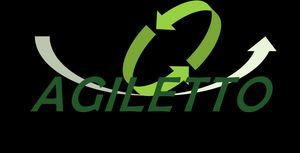Do We Really Need a Product Owner, or Can They Be Replaced by AI?
The Product Owner (PO), or "Value Maximizer" as I prefer to call them, has long been considered indispensable in Agile frameworks. They bridge the gap between customers, users, stakeholders, and the development team, ensuring the right features are built at the right time to deliver maximum value. But with the rapid advancements in AI—especially large language models (LLMs) like ChatGPT, Claude, and Bard—a bold and provocative question arises: Can a Product Owner be replaced by AI?

In this article, I’ll explore this possibility, set up an experiment, and offer concrete tips on how LLMs could support—or even replace—certain PO tasks. But don’t worry, we’ll also consider whether the human touch is still essential—or if it’s time to rethink who truly owns the Product Owner role. So, let's do it!
The Role of a Product Owner: Critical but Challenging
A Product Owner’s responsibilities include prioritizing the product backlog, communicating with stakeholders, translating business needs into actionable stories, and ensuring the team understands the product vision. The PO balances strategic goals with customer needs, all while keeping everyone aligned and maintaining focus.
The importance of this role is undeniable, but it’s also demanding—requiring deep product knowledge, business acumen, and crucially, human empathy. So how could AI possibly replace that?
Can AI Really Take Over the PO Role?
At first, it might seem absurd to suggest that AI—whether it’s ChatGPT, Claude, or Bard—could take over the complex, strategic role of a Product Owner. But let’s not dismiss it too quickly.
LLMs are already being used to augment many roles, offering powerful assistance in tasks that previously required human oversight. Could the PO be next? Let’s break down the tasks that AI could potentially handle, provided it has access to key product information like the backlog, product vision, and roadmap.
1. Backlog Refinement
- AI can help organize, prioritize, and sort backlog items based on predefined criteria such as business value, dependencies, or user feedback.
- It can suggest improvements to user stories or acceptance criteria based on past data or examples.
- AI can even update the backlog after a workshop automatically.
- LLMs can refine vague inputs into clearer user stories and feature descriptions, providing drafts that the team can then finalize.
2. Stakeholder Communication
- AI might not replace strategic discussions with stakeholders, but it could generate summaries, answer routine questions, and even collect feedback—freeing up the PO for more complex conversations.
- An AI "copilot" could respond to stakeholder queries in real-time while keeping a log of all interactions for future use.
3. Sprint Planning Assistance
- AI can assist in breaking down features into stories, estimating workload, and highlighting risks or dependencies—providing support for planning.
4. Predicting Trends
- AI can analyze vast amounts of market data and user behavior to predict trends or future needs, helping POs make data-driven decisions about product direction.
My Experiment: Letting AI Take Over Some PO Tasks
To test this, I’m running an experiment where I create an AI-driven PO for a fictional product. The AI will handle part of the Product Owner’s responsibilities. Specifically, I’ll be using it for:
- Backlog refinement and prioritization
- Breaking down features into stories
- Drafting user stories from high-level business needs
- Assisting with prioritization
I’ll report back on how the AI performs. Here’s my hypothesis: The output will look impressive on the surface but will lack the nuanced understanding required for real product success. Will AI deliver? Or will the results be less than usable? Stay tuned—I'll even share the tool so you can try it yourself!
The Human Touch: Why We Still Need a Product Owner (For Now)
Despite the impressive potential of AI, certain aspects of the Product Owner role simply can’t be automated—yet. Here’s why:
1. Empathy and Context
- A key part of the PO role is understanding the emotional landscape of the team and stakeholders, navigating conflicts, and maintaining team morale. AI might be powerful, but it cannot build trust or relationships.
2. Strategic Vision
- AI can suggest priorities based on data, but a Product Owner shapes the vision for a product. This requires deep understanding of the business, the market, and the customer’s needs.
3. Adaptability in Ambiguity
- A PO often operates in uncertainty, dealing with shifting priorities and unforeseen challenges. AI excels when patterns are clear, but humans excel at handling ambiguity and making quick, complex judgment calls.
4. Collaborative Leadership
- Good Product Owners lead by fostering collaboration and encouraging team creativity. AI can crunch numbers, but it can’t inspire or guide a team in the same way.
Could the Team Share the PO Responsibility?
One possibility is that AI could assist a team in sharing some of the PO’s responsibilities. AI could help prioritize, draft user stories, and generate summaries, while teams make the final decisions.
This requires a high level of team maturity and autonomy, but it raises an intriguing idea: could teams, supported by AI, take on more ownership and reduce reliance on a single PO?
Conclusion: The PO Isn't Going Anywhere—Yet
While AI can support many Product Owner tasks, the role of the PO is still crucial to Agile success. AI can streamline workflows and handle routine tasks, but the strategic, empathetic, and leadership aspects of the role remain uniquely human.
However, experimenting with AI as a support tool could allow POs to focus on higher-level strategy, customer collaboration, and unlocking even more value. And who knows? Maybe in the future, AI will help teams share PO responsibilities and truly democratize product ownership.
So, do we still need Product Owners? Absolutely—but with the right tools, the role could evolve into something even more powerful.
References
Last updated May 27, 2025
